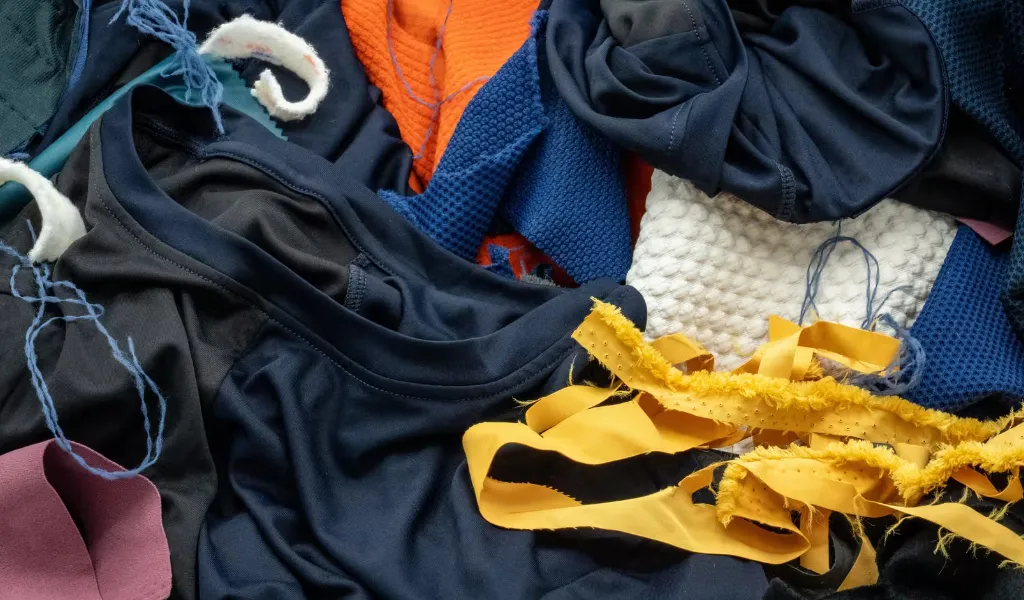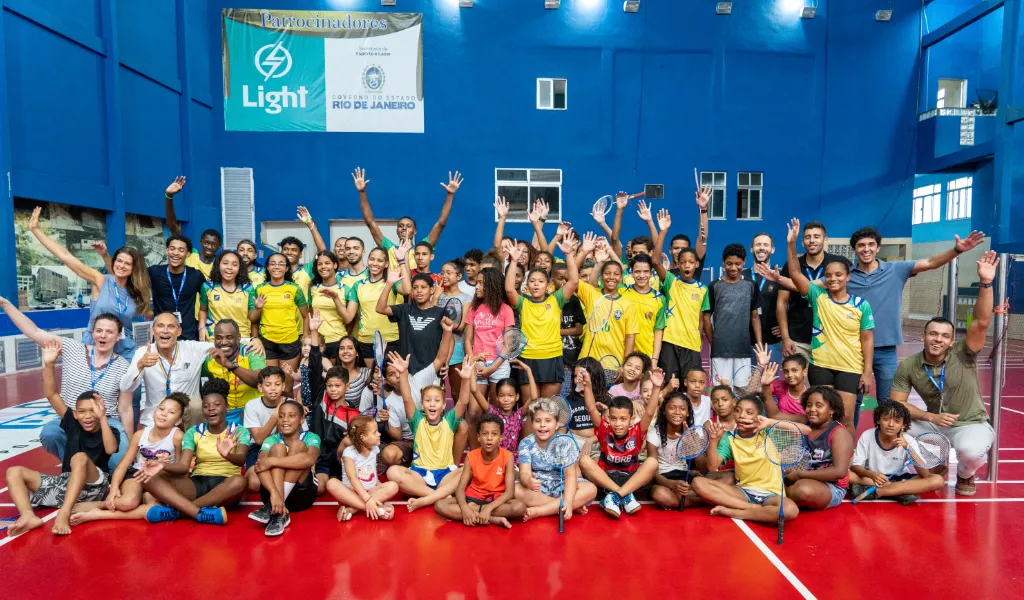One of the greatest challenges in the outdoor equipment and apparel market is adopting sustainable practices without affecting product prices and quality. But Decathlon proves it’s possible.
A reference in the sports segment, Decathlon is a French company operating in over 60 countries, with more than 1,700 stores — 50 of them in Brazil. Sustainability is embedded across the company’s entire value chain: from raw material selection to production processes and socio-environmental initiatives.
To produce various items from its own brands — 13 in total, including well-known names like Quechua, Kipsta, Domyos, among others — Decathlon invests in ecodesign, aiming to reduce resource consumption and waste generation. To achieve this, the company adopts alternatives based on low-impact raw materials, such as recycled (synthetic and metal) and organic materials.
“Ecodesign is a fundamental part of Decathlon’s commitment to achieving carbon neutrality by 2050. Our goal is to reduce our greenhouse gas emissions by 90%. By 2026, we aim to offer 100% of our products under the ecodesign concept,” says Thalita Alves, Sustainability Leader at Decathlon Brazil.

Among the sustainable and innovative processes adopted by the company are the use of recycled polyester — made from PET bottles — and a mass dyeing process that reduces CO2 emissions associated with dyed textile production by at least 46% compared to conventional dyeing.
Another initiative aimed at reducing environmental impact is the use of recycled cotton, which allows a reduction in CO2 emissions related to yarn production by at least 21% compared to virgin cotton.
More sustainable production process
Decathlon acknowledges that production has the highest environmental impact within its value chain. That’s why the company is committed to minimizing it, regardless of business growth, treating sustainability as a non-negotiable responsibility.
More than acting sporadically with suppliers, Decathlon implements structured actions, monitoring 100% of partner factories to measure, reduce, and track consumption from the main CO2-emitting sources in production. This approach not only promotes greater safety, efficiency, and cost reduction, but also reinforces the company’s environmental commitment throughout its operations.
In partnership with suppliers, initiatives are developed to improve process efficiency, reduce water and energy consumption, and monitor CO2 emissions monthly. “Decathlon actively seeks sustainable solutions, such as the replacement of harmful chemicals, the use of certified biomass, the adoption of renewable energy with traceability (I-REC), and the verification of the origin of recycled raw materials — always backed by recognized and reliable certifications.”
Moreover, Decathlon conducts strict environmental audits with its suppliers to ensure proper waste disposal and compliance with demanding environmental standards.
The concern with packaging is also part of the company’s vision. “We aim to use packaging from renewable sources and encourage customers to use reusable bags, as well as offering paper bags certified by the FSC. We have also established a partnership with eureciclo to offset 32% of the paper and plastic packaging placed on the market in 2024. Every year, we will account for the packaging used to ensure proper compensation,” reinforces Thalita.
In line with its values of responsibility, Decathlon also stands out for its rigorous stance on safety and human rights. It maintains a Vigilance Plan and a Code of Conduct for production suppliers, with mandatory minimum requirements focused on fair and safe working conditions, among others. These requirements apply across 43 supplier countries and are monitored through regular audits.
“We strive to positively impact the living standards of the people who make our products, their communities, and influence the industry we are part of, promoting safe and healthy working conditions, opportunities through responsible employment, fair wages, and community solidarity.”
Products made to last
Durability is one of the core pillars in the company’s product development. Design teams work to create items that can withstand prolonged use and the conditions for which they are intended. “We carry out rigorous tests in laboratories and real-life usage conditions to ensure the quality and longevity of our sporting goods. We believe that durable products offer better value for money to our customers and also contribute to more conscious consumption.”
In addition, Decathlon seeks to implement circular business models, such as product repair workshops in stores, buyback and resale of used products. The company offers maintenance and repair services for bicycles — of all types and brands — and provides spare parts for many of its products, encouraging customers to carry out small repairs themselves or with the help of a trusted professional.
Recycling and material reuse
Decathlon has several recycling programs in the countries where it operates. In Brazil, the company implemented a project to collect hangers used in stores, after customer purchases, with the aim of reusing them in local production. Additionally, collection points for electronic equipment and oils and lubricants are being implemented. “We are also running a pilot project in the country to recycle items that would otherwise be discarded or resell them through the second life project, if the item is in good condition,” says Thalita.
In other countries, such as Spain and France, there are additional initiatives such as turning tennis balls into flip-flops and collecting end-of-life sports items for reuse, recycling, or energy recovery, minimizing landfill or incineration disposal. Many Decathlon stores worldwide already serve as collection points for various types of waste, such as electronics, batteries, packaging, and textiles.
Furthermore, the company explores the concept of upcycling in other countries — transforming existing products or materials into something new and of higher value, such as converting used clothing into bags or accessories.
Decathlon Foundation and support for socio-environmental programs
Since 2005, the company has maintained the Decathlon Foundation with the purpose of encouraging and supporting community participation in sports, promoting social integration, and fostering workforce inclusion. Present in 53 countries, the foundation has already supported more than 1,000 projects worldwide, impacting around 900,000 people in vulnerable situations. These projects are supported through donations of time, skills, products, and financial resources.
“In Brazil, we support projects that use sports as a tool for social inclusion, education, and development for children and young people in vulnerable situations. We have already supported over 30 initiatives that positively impacted more than 80,000 people, such as the Projeto Brasileirinhos, focused on artistic gymnastics; Miratus, dedicated to badminton; the Fundação Gol de Letra, with a multi-sport approach; and the Casa do Zezinho, which offers various socio-educational activities, among others,” explains Thalita.
In addition, Decathlon promotes and participates in awareness campaigns to encourage more sustainable practices among its customers and employees. One example is the World Clean Up Day movement, a global event held annually with the aim of tackling the global waste crisis — including marine pollution and improper waste disposal. Millions of volunteers across more than 180 countries join forces to clean up streets, rivers, forests, and beaches, promoting environmental awareness and encouraging more sustainable habits.

Partnership between the Decathlon Foundation and the Miratus project
Consciousness in the outdoor market
Being in nature sustainably involves several steps — and the first is planning. In addition to planning trail routes and expeditions, it is essential to take a critical and conscious approach when choosing the equipment and clothing we use. Decathlon is an example that it is possible to make affordable and, at the same time, sustainable choices.
Responsibility lies with all of us.
This post is also available in: Português (Portuguese (Brazil)) Español (Spanish)
